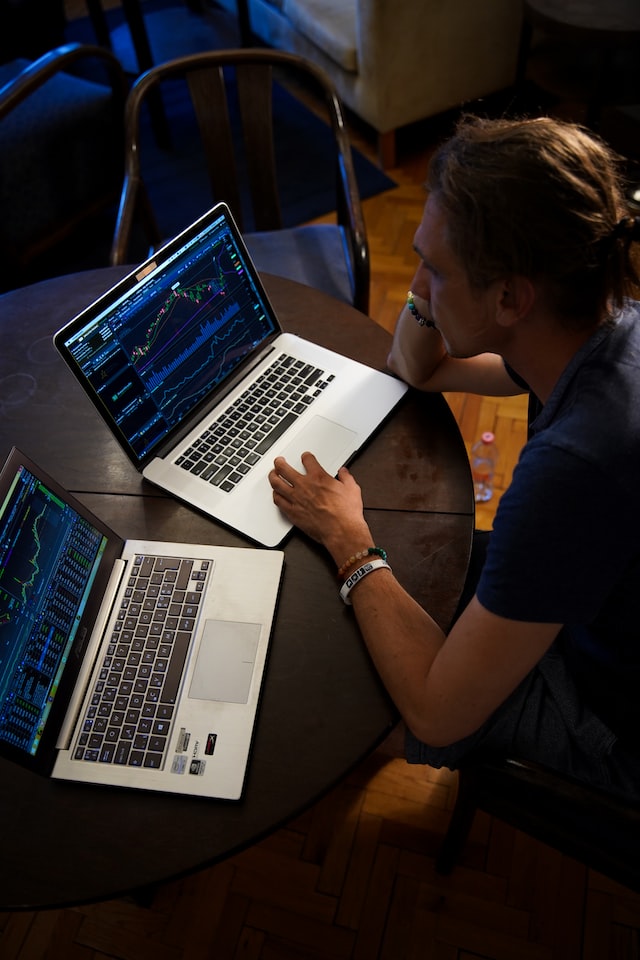Are you looking for a way to make some extra money? Have you ever considered investing in Forex? Forex is a high-risk investment, but it can be very profitable if done correctly. In this article, we will discuss the basics of Forex and how to get started. We’ll also cover some tips for avoiding common mistakes made by new investors. So if you’re ready to learn more about Forex, keep reading!
1. Find a Reputable Trading App
There are a number of different trading apps available for Forex investors. So which one is the best? That depends on your individual needs and preferences. For starters, make sure you choose an app that has a good reputation and is well-reviewed by other users. If you take a look at roboforex, for example, you’ll see that it has a great reputation and is well-regarded by users. In addition, the app you choose should be easy to use, with a user-friendly interface. And it should also offer a variety of features, including charting tools, technical indicators, and order types. By doing your research and choosing the right trading app, you can save yourself a lot of headaches and frustration.
2. Learn About Forex Trading
Before you start investing in Forex, it’s important to understand the basics of how it works. After all, poor knowledge can lead to bad decisions and potential losses. So take some time to read up on Forex trading, including the different currency pairs available and how their prices are determined. You should also familiarize yourself with the various types of orders, such as market orders and limit orders. Lastly, it’s a good idea to practice trading in a demo account first so you can get comfortable with the process before investing real money.
3. Be Aware of the Scams
Forex scams are all too common, and they can be very costly for investors. So how can you avoid being scammed? By doing your research and knowing what to look for. One of the most common Forex scams is the “get rich quick” scheme. In this scam, the perpetrator promises huge profits with very little risk. They may even claim that you can become a millionaire overnight! Needless to say, these claims are nothing but lies. If it sounds too good to be true, it probably is. So stay away from any broker or trader who makes these kinds of promises. Besides this scam, there are other shady practices you should be aware of, such as high-pressure sales tactics and hidden fees. So, for that reason, it is important for investors to do research on brokers before they make a decision. The internet can be a great resource for this as there are now several reputable websites available that offer impartial reviews and ratings for brokers. For example, topbrokers.com offers an independent list of the top-rated brokers for each country with detailed reviews of their services and features. By researching potential brokers in this way, you can save yourself time and money by confidently choosing the right broker for your needs and avoiding scams.
4. Set a Trading Plan
Once you understand the basics of Forex trading, it’s time to formulate a trading plan. This should include your investment goals, risk tolerance, and strategies for managing risks. For example, if your risk tolerance is low, you may want to stick with longer-term investments. Or if your goals are more aggressive, you may opt for a higher-risk strategy. Another option to consider when setting a trading plan is copy trading in the forex market, which allows you to mimic the trades of successful traders and potentially earn profits. Whatever your plan is, make sure it matches your goals and risk tolerance.
5. Set Aside Money You’re Willing to Lose
Although it’s possible to make money in Forex trading, it’s important to understand that there is always a risk of loss. So before you start investing, set aside some money that you’re willing to lose if things don’t go as planned. This way, if your investments don’t pan out, you won’t be financially devastated. So, how can you set a budget? Start by estimating how much money you can realistically afford to invest. Then use that amount as your budget and don’t exceed it.
6. Find a Broker You Can Trust
Finally, it’s important to find a broker you can trust. A good broker will be able to provide helpful advice and support, as well as access to the best trading platforms and tools. They should also provide customer service when needed. So take your time in choosing a broker and make sure that they have experience in Forex trading before you commit to working with them. Look for someone who is highly recommended and well-reviewed by other investors. In addition, you may want to consider working with a broker who is regulated by the Financial Conduct Authority (FCA).
By following these steps, you can get started investing in Forex with confidence. Just remember that Forex trading carries risk and research is key to making informed decisions. With the right knowledge and a little bit of planning, you can be well on your way to achieving your investment goals. Good luck!


